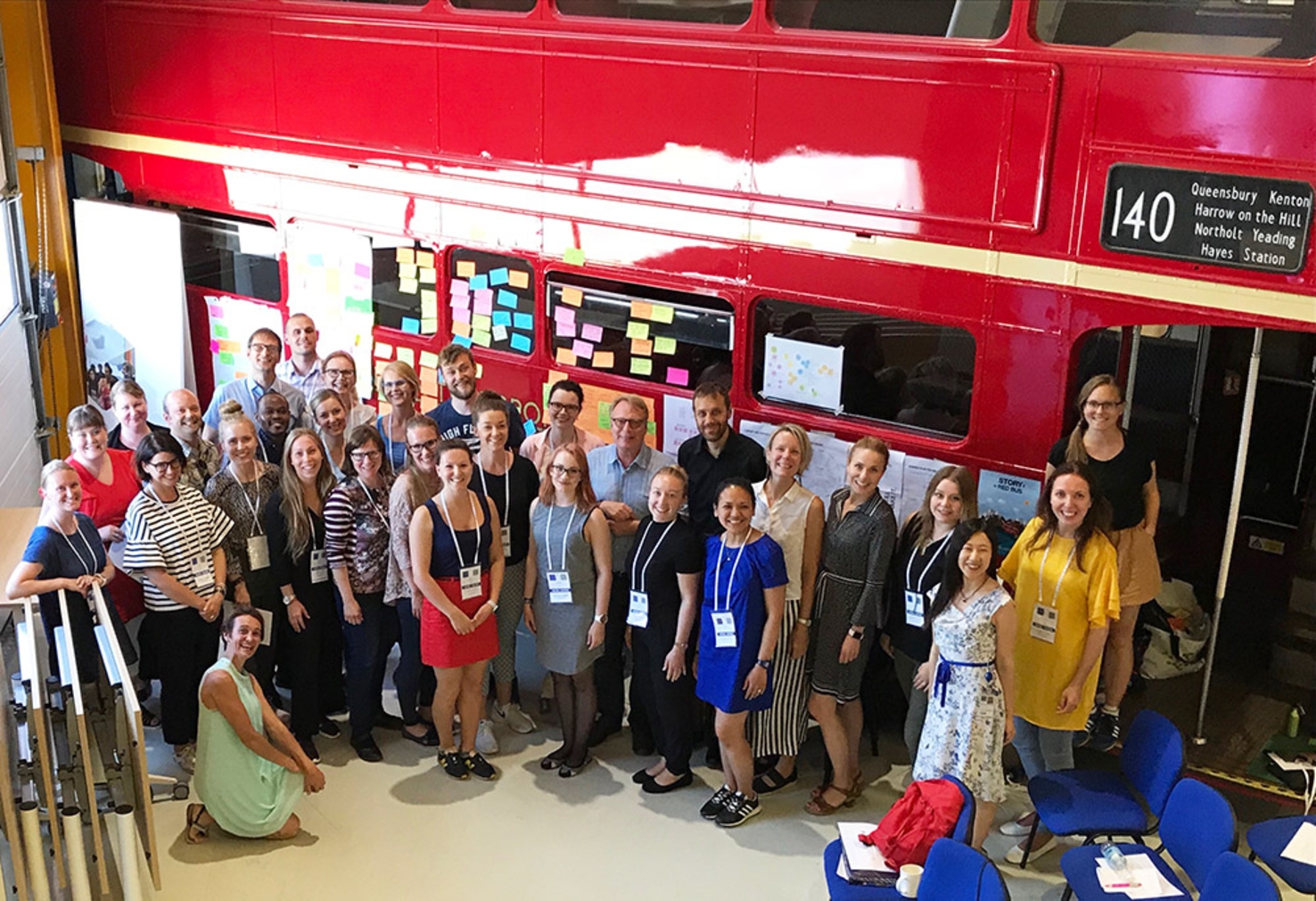CERN Bootcamp: solutions to big questions
Master’s students from three universities of applied sciences participated in an intensive week at the CERN research organisation.

“We could not have come up with these ideas without getting out of the school building,” was a common comment among the participants of the intensive CERN Bootcamp week. The students presented the results of the projects on Tuesday, 19 June.
Around 20 Master’s students from Laurea UAS, Haaga-Helia UAS and Metropolia UAS spent five days in early June at the CERN research organisation on the France–Switzerland border.
Solutions to four global challenges
Before travelling to CERN, the students formed four teams, and each team was given its own challenge to solve. The themes covered by the challenges included: reducing plastic pollution in practice, utilising open data in health care, minimising the gap between employers’ needs and employees’ skills and capabilities, and sharing information on climate change effects to consumers.
After making advance preparations and collecting background information in Finland, the students worked on their ideas at CERN for five days. The students had the opportunity to meet and interview CERN experts from different fields.
The outcomes of the project were presented on the Haaga-Helia campus in Pasila on Tuesday. The ideas included promoting physical activity among schoolchildren, guiding consumers to buy more sustainable products, utilising predictive data in job-seeking and reducing the use of plastic water bottles.
“Inspiring encounters”
Laurea students who participated in the CERN Bootcamp included Ida Haglund from the Master’s Degree Programme in Beauty and Cosmetics and Maarit Hannula from the Master’s Degree Programme in Growth and Management of an Enterprise. Both of them were satisfied with the experience:
- CERN was such an inspiring environment, and the experience was amazing. I learned a lot of new information by visiting CERN and meeting the experts, Haglund says.
- This was different from all our other courses: we spent five days in a completely new environment. This enabled new kinds of learning and ideas, Hannula continues.
During the bootcamp, the students used service design methods to develop their ideas. Interviews with the experts and testing ideas at CERN also played an important role.
- Everyone took us students seriously at CERN. We met, for example, doctoral students from the University of Geneva. They had familiarised themselves with our ideas and provided us with scientific articles on the themes, Ida Haglund says.
The CERN Bootcamp was organised by three universities of applied sciences in cooperation with Helsinki Institute of Physics.
More information:
- Virpi Kaartti
- Senior Lecturer
- Virpi.Kaartti@laurea.fi
- Tel (09) 8868 7486